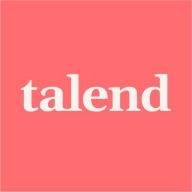

Find out in this report how the two Cloud Data Integration solutions compare in terms of features, pricing, service and support, easy of deployment, and ROI.
The Salesforce team offers different levels of support.
The support team is responsive and helpful.
MuleSoft Anypoint Platform is quite scalable, and it meets our use cases with no issues preventing implementation.
MuleSoft provides the ability to scale, yet it is costly to do so.
Currently, it uses other standards, but adopting OpenAPI, the standard in the market, would be beneficial.
When dealing with multiple transactions or trading, the system can lose control, and tracking becomes hectic.
MuleSoft is considered expensive, so pricing is a major concern.
If we could have round-the-clock support, we would be able to resolve many issues which we encounter during the development part.
I do not know the specific costs, but given that it is part of MuleSoft, I suspect it is not cheap.
MuleSoft is considered one of the more expensive products in the market.
The platform reduces manual workload in maintaining infrastructure, but it does come with some cost considerations.
The most valuable feature is the full lifecycle management, including Anypoint Designer and Exchange, as well as Discofolio API.
MuleSoft Anypoint Platform helps to standardize data integration approaches, making it easier to implement integration projects.
The platform is integrated with Salesforce, making it preferable when using Salesforce products.
It also comes with a console which helps us to monitor the jobs we have built in, making that monitoring part easy.
| Product | Market Share (%) |
|---|---|
| MuleSoft Anypoint Platform | 6.6% |
| Talend Open Studio | 2.9% |
| Other | 90.5% |


| Company Size | Count |
|---|---|
| Small Business | 21 |
| Midsize Enterprise | 12 |
| Large Enterprise | 29 |
| Company Size | Count |
|---|---|
| Small Business | 22 |
| Midsize Enterprise | 13 |
| Large Enterprise | 18 |
MuleSoft Anypoint Platform provides API management and integration capabilities with scalability, ensuring seamless connectivity across systems.
MuleSoft Anypoint Platform offers API management and integration capabilities within a user-friendly interface. With a range of connectors and the ability to handle integration patterns, it enables data integration across environments with support for API-led connectivity. High scalability, observability, batch processing, and tooling are key features, enhancing performance while simplifying deployment.
What are the standout features of MuleSoft Anypoint Platform?MuleSoft Anypoint Platform is employed by organizations for API management and seamless integration across systems in industries like retail and e-commerce. It connects enterprise applications in environments such as SAP and Salesforce. Users leverage it for data transformation and synchronization, achieving efficient real-time processing and a middleware layer across systems.
Talend Open Studio is a free, open source ETL tool for data integration and Big Data. The solution enables you to extract diverse datasets and normalize and transform them into a consistent format which can be loaded into a number of third-party databases and applications.
Talend Open Studio Features
Talend Open Studio has many valuable key features. Some of the most useful ones include:
Talend Open Studio Benefits
There are several benefits to implementing Talend Open Studio. Some of the biggest advantages the solution offers include:
Reviews from Real Users
Below are some reviews and helpful feedback written by PeerSpot users currently using the Talend Open Studio solution.
Elio B., Data Integration Specialist/CTO at Asset messages, says, "The solution has a good balance between automated items and the ability for a developer to integrate and extend what he needs. Other competing tools do not offer the same grade of flexibility when you need to go beyond what is provided by the tool. Talend, on the other hand, allows you to expand very easily."
A Practice Head, Analytics at a tech services company mentions, “The data integration aspect of the solution is excellent. The product's data preparation features are very good. There's very useful data stewardship within the product. From a technical standpoint, the solution itself is pretty good. There are very good pre-built connectors in Talend, which is good for many clients or businesses, as, in most cases, companies are dealing with multiple data sources from multiple technologies. That is where a tool like Talend is extremely helpful.”
Prerna T., Senior System Executive at a tech services company, comments, “The best thing I have found with Talend Open Studio is their major support for the lookups. With Salesforce, when we want to relate our child objects to their parent object, we need to create them via IDs. Then the upsert operation, which will allow you to relate a child object to the event, will have an external ID. That is the best thing which keeps it very sorted. I like that.”
An Implementation Specialist, Individual Contributor at a computer software company, states, “I can connect with different databases such as Oracle Database or SQL Server. It allows you to extract the data from one database to another. I can structure the data by filtering and mapping the fields.” He also adds, “It is very user-friendly. You need to know the basics of SQL development or SQL queries, and you can use this tool.”
PeerSpot user Badrakh V., Information System Architect at Astvision, explains, "The most valuable features are the ETL tools."
We monitor all Cloud Data Integration reviews to prevent fraudulent reviews and keep review quality high. We do not post reviews by company employees or direct competitors. We validate each review for authenticity via cross-reference with LinkedIn, and personal follow-up with the reviewer when necessary.